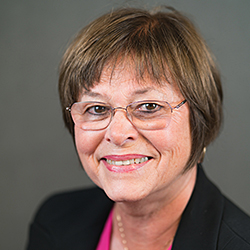Healthcare MBA Faculty Profiles
Get Program Details
This will only take a moment.
Step 1 of 2

Dr. Jean E. Johnson
Dean Emerita, Professor of Nursing
Dr. Jean E. Johnson is dean emerita and professor of nursing at the George Washington University, where she served as the founding dean of the School of Nursing. Under her leadership, she launched several innovative programs, including one of the university’s first online offerings, and further advanced the school's commitment to excellence in nursing education. She also served as interim executive director of the Center for Health Policy and Media Engagement.
A geriatric nurse practitioner by training, Dr. Johnson has focused her research and policy work on patient safety, quality improvement, and online education. Her dedication to these areas extended globally as a Fulbright scholar, teaching in the graduate clinical pediatric program at the University of Cape Town and Red Cross Children's Hospital in South Africa.
Dr. Johnson has held leadership roles with prestigious organizations, including serving as president of the National Organization of Nurse Practitioner Faculties and the American College of Nurse Practitioners. A fellow of the American Academy of Nursing, she received the NONPF Lifetime Achievement Award and GW’s Jane Lingo Alumni Outstanding Service Award. Through her groundbreaking work, Dr. Johnson continues to shape nursing education, safety and quality both nationally and internationally.
